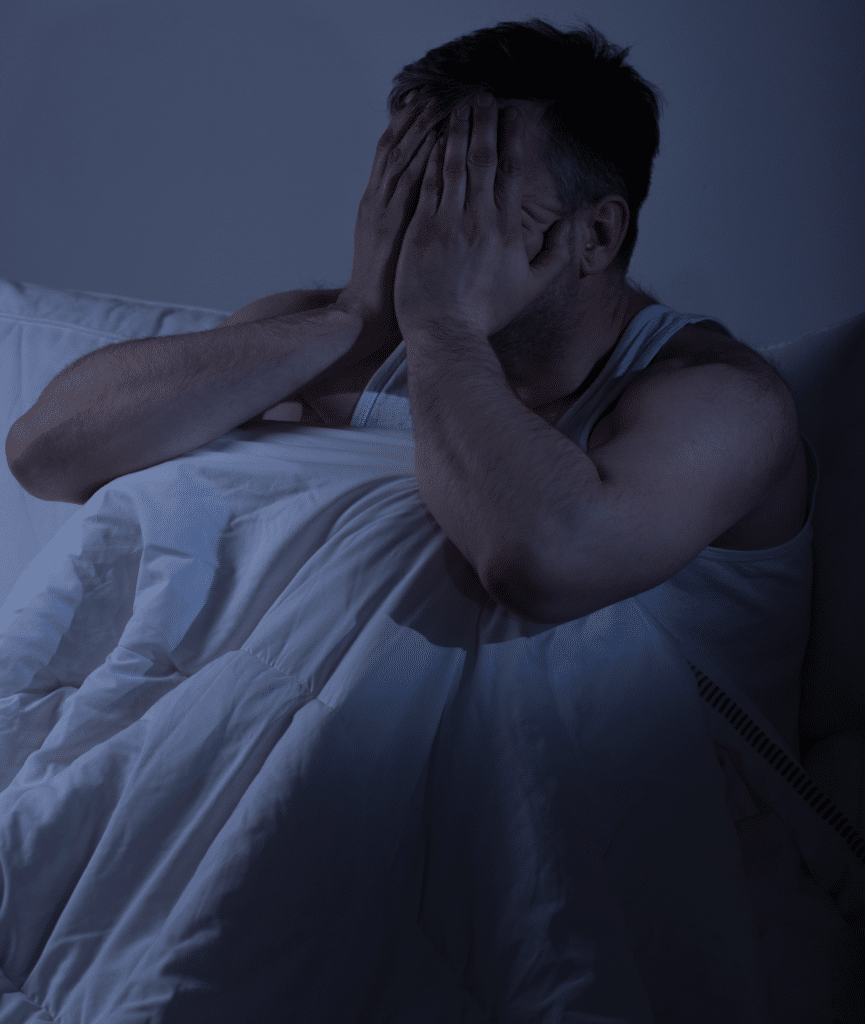Zolpidem (Ambien) for Adults: How Does Ambien Work?


Zolpidem, better known by its brand name Ambien, is a medication used to treat sleep-onset insomnia. In other words, it helps people who can’t fall asleep fall asleep faster. It was first approved by the U.S. Food and Drug Administration (FDA) in 1992 and quickly became a go-to option for short-term insomnia relief.
Ambien belongs to a class of medications known as the “Z-drugs,” which also includes eszopiclone and zaleplon. These drugs were developed as alternatives to benzodiazepines to produce similar sedative benefits but fewer side effects. But have they lived up to this promise? We’ll find out shortly.
On this page, we take a close look at zolpidem: How it works in the brain, what it’s effective for, who it’s helpful for, and the potential risks involved in taking this medication.

What Is Ambien Used For?
Ambien is prescribed for people who can’t fall asleep, consistently, chronically, and to the point where it’s ruining their ability to function during the day. This drug is typically not prescribed for those who fall asleep just fine but wake up at 3 AM and can’t go back to sleep. That’s a different subtype of insomnia (sleep maintenance insomnia), and Ambien’s standard version doesn’t work for that.
How Does Ambien Work?
GABA binds to its receptors on brain cells, which, when activated, open up chloride channels that make it harder for the cells to fire. Fewer firing neurons (brain cells) means less brain chatter, and that’s what allows sleep to take over.
Ambien binds to GABA-A receptors at the alpha-1 subunit.2 The alpha-1 subunit is closely linked with sedation, sleep induction, and amnesia (loss of memory), but not with anti-anxiety or muscle-relaxing effects.
How Fast Does Ambien Work?
Taking Ambien right after a big meal can slow its onset by up to 90 minutes, according to the FDA.3 So, it is ideal to take it on an empty stomach, ideally two hours after eating, for faster effects. It’s also helpful to be in bed or ready to lie down as soon as you take it.
How Long Does Ambien Last?
Ambien has a short half-life of about 2.5 hours in healthy adults, which means it’s out of your system relatively quickly. If you take 10 mg at midnight:
- Around 5 mg remains at 2:30 AM
- About 2.5 mg by 5:00 AM
- And only approximately 1.25 mg or less by 7:30 AM
Now, although Ambien’s half-life is short, its clinical effects, that is, the time you actually feel sedated or drowsy after taking it, last about 6–8 hours. That’s why doctors recommend that you have at least 7–8 hours of available sleep time after taking Ambien.
Ambien Dosage and Timing
For most adults, the standard recommended dose of immediate-release Ambien is 10 mg, taken once per night right before bed. Since it kicks in quickly, it’s a good idea to take it when you’re 100% ready to sleep with the lights off and phone down.
In older adults or people with liver disease, the dose is reduced to 5 mg per night because these people process zolpidem more slowly.1 That means the drug lingers longer in their system, increasing their risk of next-morning drowsiness and impaired coordination.
Ambien is available as non-scored tablets, which means it’s important to take the tablet as is, and not cut them in half to “adjust” your own dose. The drug isn’t always evenly distributed throughout the pill, and breaking it gives you an unpredictable amount.
In addition, as previously said, taking Ambien after a meal, especially one high in fat, can delay its absorption into your system. This means you could be wide awake an hour or more later if you don’t take it at least two hours after your last meal.
Ambien also comes in a controlled extended-release version, called Ambien CR, in 6.25 mg and 12.5 mg tablets.4 It works in two stages: One layer releases immediately to help you fall asleep, and another dissolves slowly to keep you asleep for long durations. This version should also be taken right before bedtime, and only if you can commit to a straight 7–8 hours of sleep.
How Effective Is Ambien for Long-Term Insomnia?
In one study, researchers looked at 1,068 patients with diagnosed insomnia disorder. Compared to placebo (sugar pill), after one month of nightly use of Ambien, patients reported:5
Increased total sleep time (meaning they stayed asleep longer)- Reduced sleep latency (they fell asleep faster)
- Improved subjective sleep quality (they felt like they slept better)
One of the biggest criticisms of sleep medicines like Ambien is that they stop working over time; that your body adapts to them and builds tolerance against them. But scientific evidence doesn’t support it.
A study randomized the patients to receive zolpidem 10 mg (or 5 mg for adults >60 years) or placebo 30 minutes before bedtime for eight months.6 It found that Ambien increased total sleep time at both the 1-month and 8-month checkpoints. It also increased the percentage of time in bed actually spent sleeping, reduced sleep latency, and continued to work for eight months without any dose increases needed.
Side Effects of Ambien
Unlike benzodiazepines, which cause more generalized sedation, zolpidem selectively impairs attention and verbal memory. This can translate into daytime brain fog and difficulty focusing.8
Another side effect people have reported is complex sleep behaviors. Ambien users have reported sleep-driving, cooking, shopping, and engaging in conversations or aggressive acts while in a sleep-like state with no memory afterward.9 This, of course, is worrying – it’s important to speak to your doctor if you experience any of these behaviors while on Ambien.
There are also some reports that Ambien exposure in pregnancy is linked to higher odds of preterm birth and small-for-gestational-age babies.10
So, as you can see, it’s not without its risks. However, it’s important to note that doctors understand these risks and can advise you on whether or not it’s safe for you to take Ambien.
Who Can and Can Not Take Ambien?
Ambien is FDA-approved for anyone over 18 and under 65 with normal liver function who is struggling with sleep disruption. However, it‘s not recommended as a plan A treatment for insomnia. Instead, it’s a rescue option after behavioral strategies like cognitive-behavioral therapy and basic circadian management haven’t worked or aren’t accessible.
In addition, the following groups of people are advised not to take Ambien (unless recommended by a doctor):
- Older adults (especially over 65)
- People with a history of sleepwalking, parasomnias, blackouts, or dissociative episodes
- Pregnant or breastfeeding women
- People with untreated depression, bipolar disorder, or suicidal ideation
- People with liver disease
- Patients with obstructive sleep apnea
Natural Alternatives to Ambien
Due to the side effects of prescription sleep medicines like Ambien, many people struggling with insomnia turn to natural alternatives that help them sleep better. Cognitive behavioral therapy for insomnia (CBT-I), for example, is a structured and evidence-based program that rewires how you relate to sleep.
It is used to take control of your toxic thoughts (e.g., “I have to fall asleep right now or I’ll ruin tomorrow”) and unhelpful sleep habits like scrolling TikTok at 1 AM that keep insomnia locked in. CBT-I programs include sleep restriction, stimulus control, and cognitive restructuring.
There are also some other natural alternatives to Ambien that can help you sleep better, for example:
- Melatonin, which shifts your internal clock. A small dose (0.3–1 mg) taken 2–3 hours before your desired bedtime resets your rhythm.
- Magnesium, especially in glycinate or citrate form, promotes relaxation and supports sleep depth. A 200–400 mg dose about an hour before bed does the job.
- Glycine is another underused sleep aid. A 3-gram dose before bed has been shown to help people fall asleep faster and wake feeling more refreshed. It works partly by lowering core body temperature, which naturally signals to your brain that it’s time for sleep.
- L-theanine, found in green tea, increases alpha brain waves that normally appear during meditation. It calms your brain down and is quite effective against anxiety-related insomnia.
When to Seek Help for Insomnia
Ambien is a short-term sleep fix. When used in the long run, some people argue that its side effects outweigh its benefits.
If your sleep issues have become a recurring pattern, or if they’re tangled up with anxiety, depression, trauma, or burnout, you need a personalized, deeper solution than just Ambien. That’s where Mission Connection comes in.
We develop tailored solutions to chronic sleep problems based on CBT-I, outpatient group therapy, individual therapy, and medication management. Such support helps you retrain your brain and break free from unhealthy patterns that prevent you from getting restful sleep.
Call Mission Connection today to start your healing or get started online.

References
- Bouchette, D., & Quick, J. (2024, February 29). Zolpidem. Nih.gov; StatPearls Publishing. https://www.ncbi.nlm.nih.gov/books/NBK442008/
- Neumann, E., Rudolph, U., Knutson, D. E., Li, G., Cook, J. M., Hentschke, H., Antkowiak, B., & Drexler, B. (2019). Zolpidem Activation of Alpha 1-Containing GABAA Receptors Selectively Inhibits High Frequency Action Potential Firing of Cortical Neurons. Frontiers in pharmacology, 9, 1523. https://doi.org/10.3389/fphar.2018.01523
- HIGHLIGHTS OF PRESCRIBING INFORMATION. (n.d.). https://www.accessdata.fda.gov/drugsatfda_docs/label/2008/019908s027lbl.pdf
- HIGHLIGHTS OF PRESCRIBING INFORMATION. (n.d.-b). Retrieved May 16, 2025, from https://products.sanofi.us/ambien_cr/ambien_cr.pdf
- Xiang, T., Cai, Y., Hong, Z., & Pan, J. (2021). Efficacy and safety of Zolpidem in the treatment of insomnia disorder for one month: a meta-analysis of a randomized controlled trial. Sleep Medicine, 87. https://doi.org/10.1016/j.sleep.2021.09.005
- Randall, S., Roehrs, T. A., & Roth, T. (2012). Efficacy of Eight Months of Nightly Zolpidem: A Prospective Placebo-Controlled Study. Sleep, 35(11), 1551–1557. https://doi.org/10.5665/sleep.2208
- Westermeyer, J., & Carr, T. M. (2020). Zolpidem-Associated Consequences. The Journal of Nervous and Mental Disease, 208(1), 28–32. https://doi.org/10.1097/nmd.0000000000001074
- Stranks, E. K., & Crowe, S. F. (2014). The acute cognitive effects of zopiclone, zolpidem, zaleplon, and eszopiclone: A systematic review and meta-analysis. Journal of Clinical and Experimental Neuropsychology, 36(7), 691–700. https://doi.org/10.1080/13803395.2014.928268
- McMahon M. (2016). Zolpidem, Complex Sleep-Related Behaviour and Volition. Journal of Law and Medicine, 24(2). https://pubmed.ncbi.nlm.nih.gov/30137715/
- Wang, L-H., Lin, H-C., Lin, C-C., Chen, Y-H., & Lin, H-C. (2010). Increased Risk of Adverse Pregnancy Outcomes in Women Receiving Zolpidem During Pregnancy. Clinical Pharmacology & Therapeutics, 88(3), 369–374. https://doi.org/10.1038/clpt.2010.97
